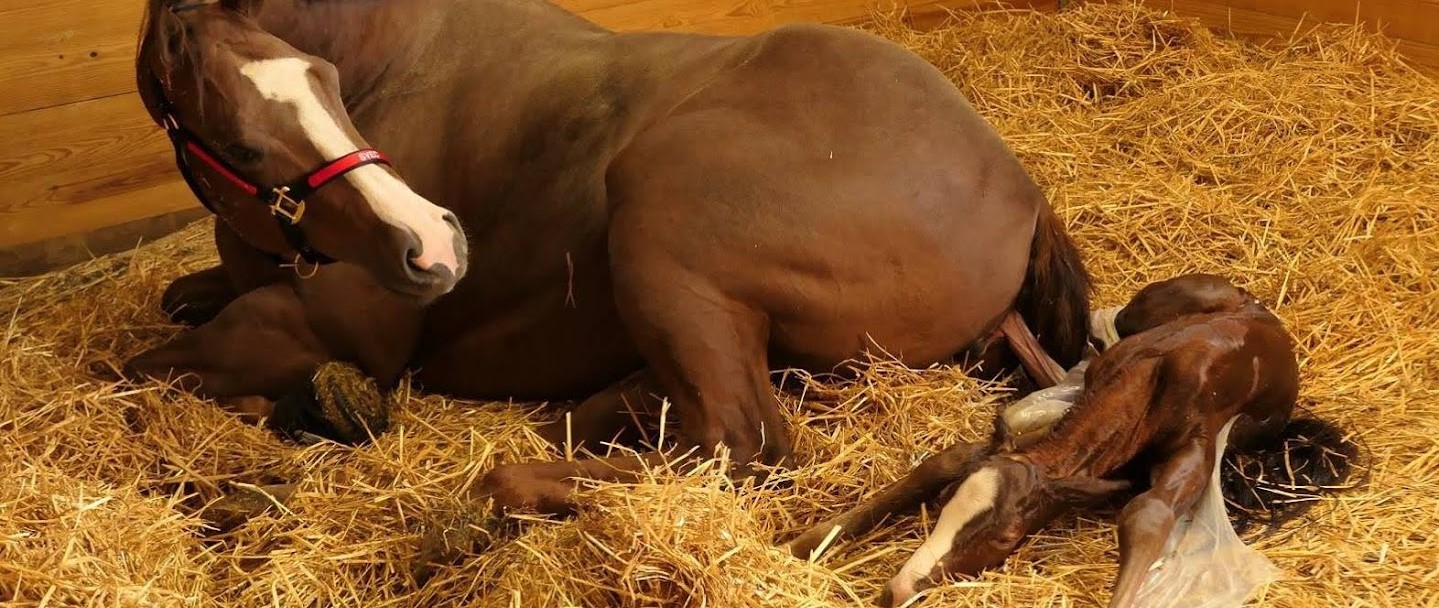Congratulations, your mare is pregnant! Over the course of her gestation she will need a few things to keep her and the foal healthy and protected.
Equine Rhinopneumonitis Vaccination Series
We recommend using Zoetis Pneumabort-K®+1B at 5, 7, and 9 months of gestation. This vaccine reduces risk of your mare contracting the equine herpesvirus Type 1. This can cause abortion, the foal being weak or nonviable at birth, and/or foals with respiratory tract disease (rhinopneumonitis). Horses may be asymptomatic while still spreading the disease to others.
30-Day Pre-Foaling Vaccines
Vaccinating pregnant mares 30 days from their estimated foaling date provides the antibodies necessary to produce colostrum with a high concentration of IgG (immunoglobulin G). Unlike humans, horses do not transfer immunoglobulin to the fetus during pregnancy. Foals are born essentially without an immune system and obtain protective immunity through the absorption of ingested colostral antibodies. To ensure appropriate protection for your foal we recommend vaccinating your mare for Eastern Equine Encephalitis, Western Equine Encephalitis, Tetanus, West Nile, Rabies, Flu, and Rhinopneumonitis.
Deworming Recommendations
- Please deworm your mare with 1 of the following products in November: Equimax, Zimectrin Gold, or Quest Plus.
- At the 30-day pre-foaling vaccination please deworm with Ivermectin paste.
- You will also want to deworm your mare within 1 week after foaling with Ivermectin paste.
Feed
Provide good quality hay and adequate pasture intake so that the mare can maintain an appropriate body condition during her pregnancy. No increase in calories is needed until the last 3 months of gestation. Also remove any source of fescue hay or grass during the last 60 days of gestation to reduce the risk of decreased milk production.
The last 90 days of gestation involves the largest growth of the foal and we recommend slowly switching the mare over to a growth pellet at that time and continuing it until the foal is weaned.
Health Maintenance Recommendations
Continue to have your farrier trim the mare’s feet as needed; usually every 6-8 weeks.

